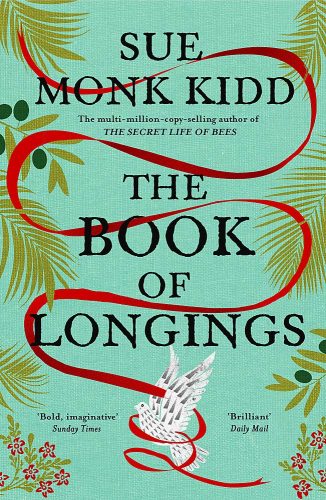
‘I am Ana. I was the wife of Jesus.’
So begins this fascinating tale of a woman who is born into the deeply patriarchal world of first century Galilee and is sold by her father to her husband, but longs to control her own destiny. Along the way she marries Jesus Ben Joseph, more commonly known as Jesus of Nazareth, or the messiah.
What’s it about?
Female friendship and empowerment. Love. Longing. Loss – and survival.
Unusually for her gender, Ana has been taught to read and write; now she wishes to use those skills to make her mark on the world, specifically to raise up the stories of women whose own voices have gone unheard. (In this aim she reflects her author, as this novel is designed to do exactly that.)
Despite Ana’s fervent dreams and hopes, her coming of age sees her betrothed to an elderly widow in need of a son. Can this really be what God has planned for her life? Her chance encounter with a young carpenter in Nazareth opens up a different future, but life will be life, and no life is free of tragedy.
What’s it like?
Glorious. Beautiful. Life affirming.
We first meet Ana as her perception of herself is transformed by the opinion of her Aunt Yaltha, who tells her she is blessed by God for possessing skills that her mother and father have denigrated. ‘Until that moment I’d thought I was merely peculiar – a disturbance of nature. A misfit. A curse.’
Yaltha further amazes young Ana by giving her a precious gift that encourages her to acknowledge her longings and aspirations, telling her that God will listen. I wish that every young girl had an Aunt like Yaltha, to encourage their deepest longings and guide them on their journey. This, for me, was the relationship at the heart of the book.

Of course, the hook in this story’s opening line is intriguing. What will Ana’s life with Jesus be like? What will their relationship be like? Monk Kidd shows us the Jesus that the bible doesn’t: here is the family man, who works at various jobs throughout his twenties to support his growing family; and here is the husband who takes care to listen to his wife and respect her beliefs.
Be aware: when Jesus begins his ministry, Monk Kidd steps away. We hear from Ana that Jesus talks with prostitutes and becomes angry with the money lenders at the temple, but this is a tale told from Ana’s perspective and if Ana doesn’t see or hear of an event, neither do we. This is not the Jesus who committed miracles – but then, this isn’t Jesus’ story: it’s Ana’s.
Final thoughts
The depiction of female friendship and solidarity is wonderfully comforting, just as it is in Monk Kidd’s debut novel, ‘The Secret Life of Bees’. Yes there are females who scheme and sneer and manipulate, but they are never granted centre stage, and the central feeling of this book is that this strong base of female support empowers the women to live their lives to the full.
I liked the depiction of Jesus as a man who was devout but came to his calling gradually – then suddenly. He was rooted in his context and I felt this was an authentic portrayal of his story, though I would perhaps have liked Monk Kidd to incorporate some of the grander moments of his story. (Possibly we are meant to think that the miracles were added to his story later, as myths or exaggerations; at one point Ana notes in passing that Lazarus looked much better than he did before, but there is no reference to Jesus being involved.)
That said, as I noted previously, this isn’t his story: if Jesus had a wife (and there is no evidence to determine whether he did or did not) then she has been ignored for a millennium. Here, Monk Kidd gives her a voice which is powerful and compelling, surely encouraging all women to listen and give voice to their innermost longings.
‘The Book of Longings’,
Sue Monk Kidd,
2020, Tinder Press, paperback
Many thanks to Anne Cater and Tinder Press for providing me with a copy of this book in exchange for an honest review.
Want to know more? Follow the tour:

1 Comment
Huge thanks for this blog tour support x